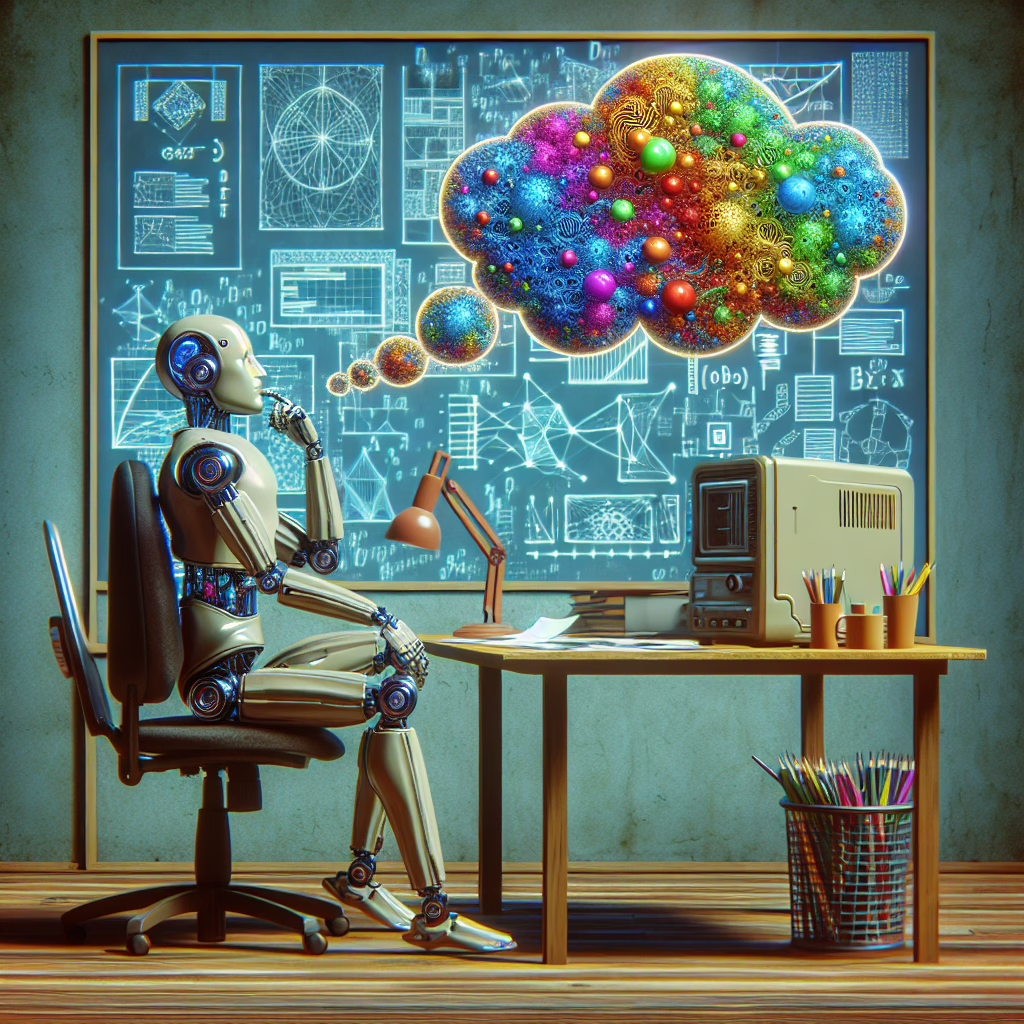Have you ever dreamed of an artificial intelligence that not only crunches numbers but also dreams up algorithms that surpass human capabilities? Welcome to the world of Google DeepMind, where the line between science fiction and reality blurs, and AI algorithms are taking center stage in a grand performance of innovation.
What Makes Google DeepMind’s AI Algorithms So Special?
In the tech universe, AI algorithms are like the Swiss Army knives of digital tools. They’re versatile, efficient, and occasionally make you wonder if they’ve been secretly attending a coding boot camp while you weren’t looking. Google DeepMind’s latest endeavor involves training AI agents to generate algorithms that even seasoned experts might find perplexing.
This isn’t just any run-of-the-mill AI operation. It’s akin to giving a toddler a paintbrush and saying, “Go create a masterpiece.” Only in this case, the masterpiece is an algorithm that could potentially solve complex problems faster than you can say “machine learning.”
The Science Behind the Magic
So how does it work? Well, imagine feeding your favorite AI with a steady diet of data, problem-solving frameworks, and perhaps a sprinkle of mathematical fairy dust. This is precisely what researchers at Google DeepMind have done. They’ve devised methods that allow their AI to not just learn from existing algorithms but also to innovate new ones.
The most exciting part? These AI algorithms can operate in ways that humans might not even consider! It’s like having a super-smart friend who always knows the best shortcut to avoid traffic. Except this friend lives in your computer and doesn’t need coffee breaks.
A Glimpse into Future Possibilities
Let’s take a moment to ponder what this means for the future. With Google DeepMind leading the charge, we could see advancements in various fields—from healthcare to environmental science—where AI-generated algorithms optimize processes we haven’t even dreamed up yet. Imagine an algorithm finding cures for diseases or tackling climate change issues while you sip your morning coffee.
Of course, all this innovation does come with its fair share of questions. For instance: will we need to start worrying about AI algorithms taking over our jobs? Or will they simply become our new best friends who help us tackle tedious tasks? As they say, “With great power comes great responsibility,” or in this case, great coffee breaks.
The Impact on Human Expertise
You might be wondering: How does this affect human expertise? Let’s face it; no one wants to be outsmarted by an algorithm at trivia night. But fear not! Rather than rendering human knowledge obsolete, these AI advancements could augment our capabilities.
Think of it this way: if you had an AI that could analyze vast amounts of data in seconds, wouldn’t you want it on your team? Instead of replacing experts, Google DeepMind’s AI algorithms can empower them—freeing up time for creativity and strategic thinking while leaving the number-crunching to their digital companions.
The Quest for Collaboration
The real magic lies in collaboration between humans and machines. Imagine working alongside an AI that brings fresh perspectives and novel solutions to the table. It’s like having a brainstorming partner who never runs out of ideas (or snacks). The synergy between human ingenuity and machine precision could lead us into uncharted territories of innovation!
As we embrace this technological renaissance, it’s essential to maintain a sense of humor about our newfound robotic buddies. After all, if they start writing stand-up comedy routines next, we might have to reevaluate our careers!
Challenges and Ethical Considerations
With the rapid deployment of Google DeepMind’s AI algorithms, a new frontier of challenges and ethical concerns arises. For instance, the potential for bias in algorithmic decision-making could have real-world implications. Addressing these concerns is vital to ensuring that AI enhances rather than hinders societal progress.
- Transparency: Users must understand how these algorithms make decisions.
- Accountability: Establishing who is responsible if an AI algorithm makes an error.
- Fairness: Ensuring algorithms don’t perpetuate existing inequalities.
By addressing these challenges, Google DeepMind can pave the way for an ethical partnership between humans and technology.
Conclusion: Embracing the Future with Humor
As we navigate this exciting landscape shaped by Google DeepMind’s AI algorithms, let’s remember to approach it with curiosity and maybe even a dash of humor. The future isn’t about humans versus machines; it’s about humans and machines working together—like peanut butter and jelly or Netflix and popcorn.
So what do you think? Are you excited about the possibilities that lie ahead with these advanced AI algorithms? Or are you still trying to wrap your head around your smartphone’s latest update? Share your thoughts below! We’d love to hear from you!
A special thanks to Wired for inspiring this article!

